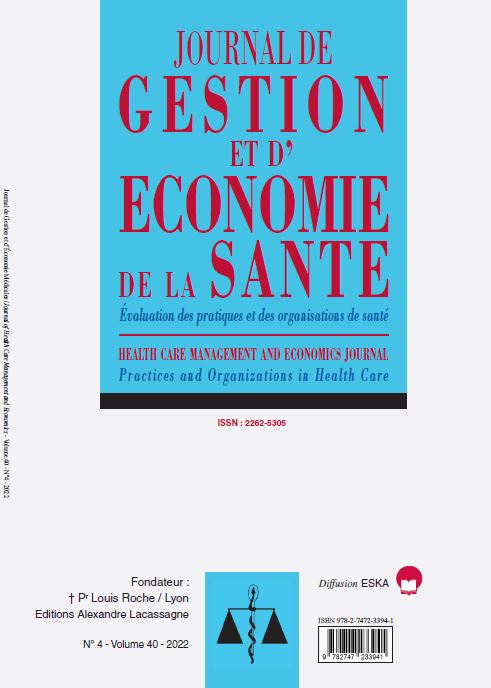LEAN IN HOSPITAL: DICTATURE OF THE TOOL VERSUS CARING ANARCHY
DOI:
https://doi.org/10.54695/jdds.040.4.6381Keywords:
Lean healthcare, Dynamique ingéniérique, Composantes du lean, Management.Abstract
The evolutions of the health system require establishments to radically transform their functioning and thus actors to innovate in their organizational and managerial practices. We are interested here in the introduction within hospitals of lean healthcare, considered as a managerial innovation centered on the value perceived by the patient with the objective of improving the quality of care by a contribution of all the actors in the search for solutions [1]. We approach its multidimensional character from the reading grid of Hatchuel and Weil [2] focused on a deconstruction of tools. We ask the following research question: what engineering dynamic of the lean healthcare approach promotes its efficiency and acceptability within the organizational complexity of hospitals? In other words, it is a question of knowing whether there is no possibility of going beyond the simplistic alternative which is reduced to the choice between on the one hand effective but dehumanized tools and on the other hand empathetic but overwhelmed managers. In order to respond to this issue, we are mobilizing intervention research leading us to immersion for eight months in a Luxembourg hospital as close as possible to the deployment of a lean healthcare approach. The results chronologically describe the engineering dynamics of the lean healthcare approach and identify the influence of each component of each tool. We finally discuss these results by addressing the effectiveness of the tools and their acceptability through the prism of their associated typology in place of each component and the scope of one of them.
Published
How to Cite
Issue
Section
Copyright (c) 2023 Journal de gestion et d économie médicales

This work is licensed under a Creative Commons Attribution-NonCommercial 4.0 International License.









